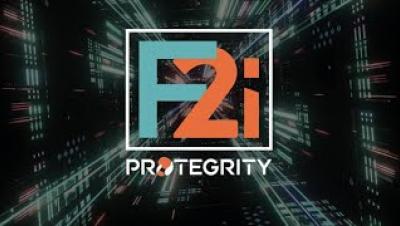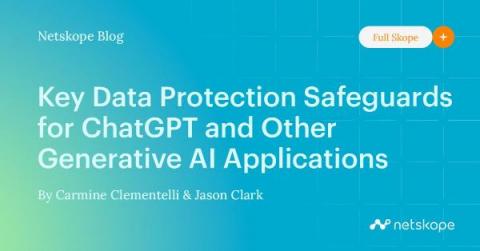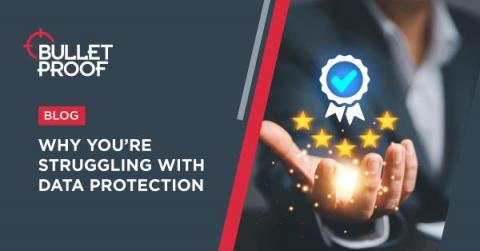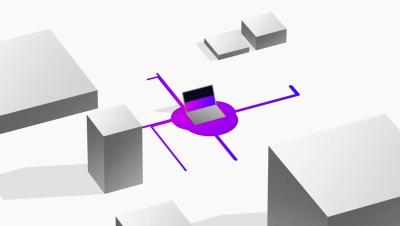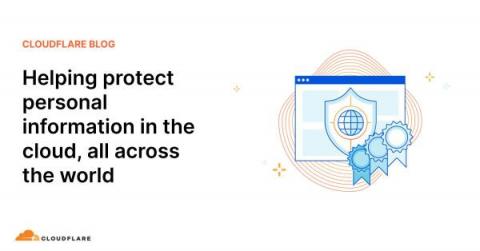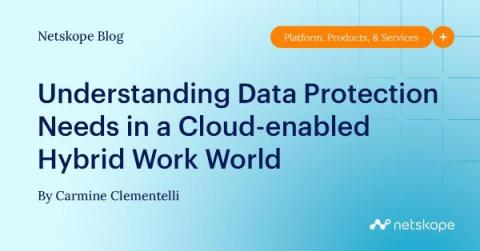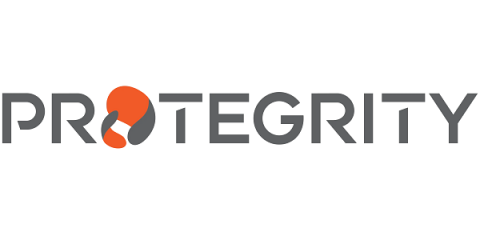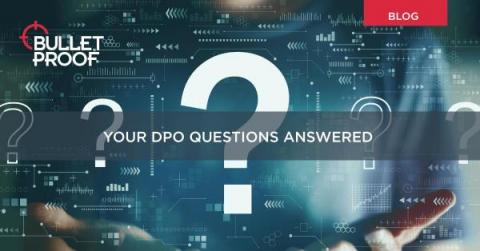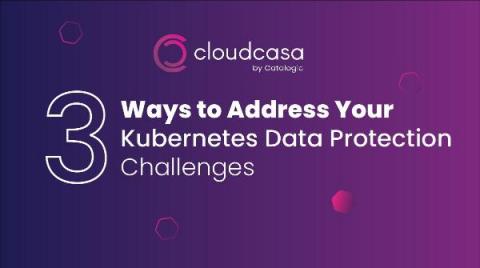Security | Threat Detection | Cyberattacks | DevSecOps | Compliance
Data Protection
Modern Data Protection Safeguards for ChatGPT and Other Generative AI Applications
Co-authored by Carmine Clementelli and Jason Clark In recent times, the rise of artificial intelligence (AI) has revolutionized the way more and more corporate users interact with their daily work. Generative AI-based SaaS applications like ChatGPT have offered countless opportunities to organizations and their employees to improve business productivity, ease numerous tasks, enhance services, and assist in streamlining operations.
The Easiest Ways To Protect The Important Data In Your Company
Why you're struggling with data protection
This blog is based on insight from our 2023 State of Cyber Security report. This month sees GDPR celebrate its 5th birthday, and during that time it’s stayed more-or-less the same. With unchanging rules and half a decade of time to get data protection things in order, you might think that the need for GDPR consultancy is dwindling. However, as we showed in our 2023 State of Cyber Security report, that’s sadly not the case.
Intro to Cyberhaven
Helping protect personal information in the cloud, all across the world
Cloudflare has achieved a new EU Cloud Code of Conduct privacy validation, demonstrating GDPR compliance to strengthen trust in cloud services.
Understanding Data Protection Needs in a Cloud-enabled Hybrid Work World
Today, Netskope partnered with the Cloud Security Alliance to release the Data Loss Prevention (DLP) and Data Security Survey Report, a survey focused on data protection needs in cloud and hybrid work environments. Unsurprisingly, the report found that the biggest pain point organizations identify with trying to modernize their data protection strategy is that current DLP deployments show limitations when it comes to cloud and remote work use cases, and they are a nightmare to manage.
A Hitchhiker's Guide To Cross-border Data Protection
Imagine doing business in a bubble. You are an international company only allowed to make decisions using data collected within your country and by your business unit (BU). You also cannot share data with subsidiaries or third parties. It would be challenging to conduct day-to-day business, let alone innovate and grow. Fortunately, this isn’t the state of business today. Organizations transfer trillions of data points across borders daily.
Your DPO Questions Answered
Every business that collects personal data via a website, app, or even via the phone/post will find that they need the skills and expertise of a Data Protection Officer at some point to ensure safe and confidential data processing. But what is a DPO exactly? Do you really need one? And what if you don’t want to hire someone full time? Read on to find out more about the roles and responsibilities of the DPO and when to hire one to secure your data.
3 Ways To Address Your Kubernetes Data Protection Challenges
Kubernetes is an open-source container orchestration tool originally developed by Google for managing microservices or containerized applications across a distributed cluster of nodes. It is widely thought that “Kubernetes is key” to cloud-native application strategies. Kubernetes (K8s) runs over several nodes, and the collection of nodes is called a cluster. K8s clusters allow application developers to orchestrate and monitor containers across multiple physical, virtual, or cloud servers.


